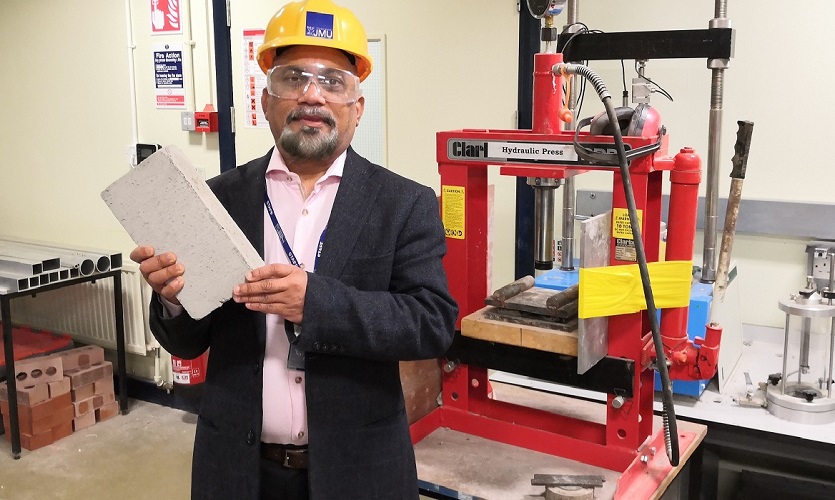Civil engineers offer solution to Bangladesh's toxic construction industry

A NOVEL brick made from industrial waste has the potential to make a positive environmental impact and create 'clean jobs' in Bangladesh and elsewhere.
Clean brick manufacturing has become a key industrial priority since the Bangladeshi government moved to outlaw highly-polluting open kiln processes by 2023/24 in a bid to cut air pollution and carbon emissions.
The history of Bangladesh's brick sector is one of toxic fumes and atrocious working conditions. Thick black smoke from the country's thousands of brick kilns pollute the air with particulate matter, carbon dioxide (CO2) and other harmful gases, driving climate change and harming human health.
A successful trial has now developed a novel brick made solely from industrial wastes to replace the traditional clay and cement blocks.
Benefits air and land
The trial was conducted by Dr Manower Sadique from the School of Civil Engineering and Built Environment and Professor Sadiqul Islam of Chittagong University of Engineering & Technology (CUET).
They confirm that the novel brick is equivalent in strength, robustness and durability to the clay and cement variety. It is also an unfired brick meaning huge savings in coal and timber, reducing both air pollution and carbon creation.
While more 'green' brick manufacture is underway in the country, most still use clay and its removal in vast quantities speeds the drying of farmland and harms agriculture
This new brick, uses zero primary resources and displays all the properties of a conventional brick.
Global Challenges Research Fund
"It requires no burning or even any curing in water. It is ready to be used just after seven days of air drying," said Dr Sadique.
"It can be mass produced very quickly and the new technology is something that small manufacturers and SMEs can install very easily," said Professor Islam.
The project at CUET established a mini brick maker capable of producing 20pcs of bricks in just 15 minutes using just two people.
The new technology, funded by the Global Challenges Research Fund, was presented on 5 July to the Institute of Engineers, Bangladesh (IEB), Chittagong Center, and UK Institution of Civil Engineers (ICE) Bangladesh Chapter and attended by the government, policymakers, and industry.
Nashid Islam, Chairman of the ICE Bangladesh Chapter and a director of ABC Ltd described the technology as "inspiring" at a time when "Bangladesh was "looking for such environment friendly alternatives desperately on short and medium term basis"


